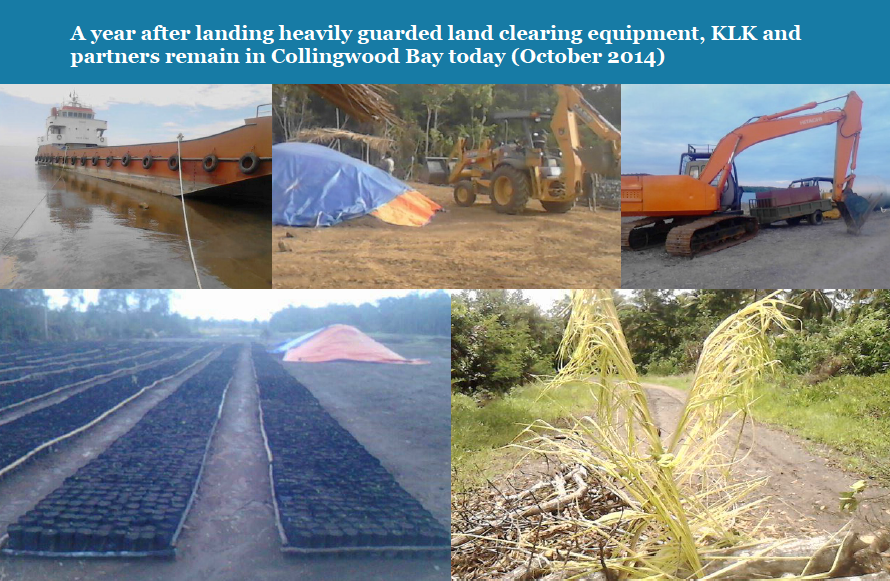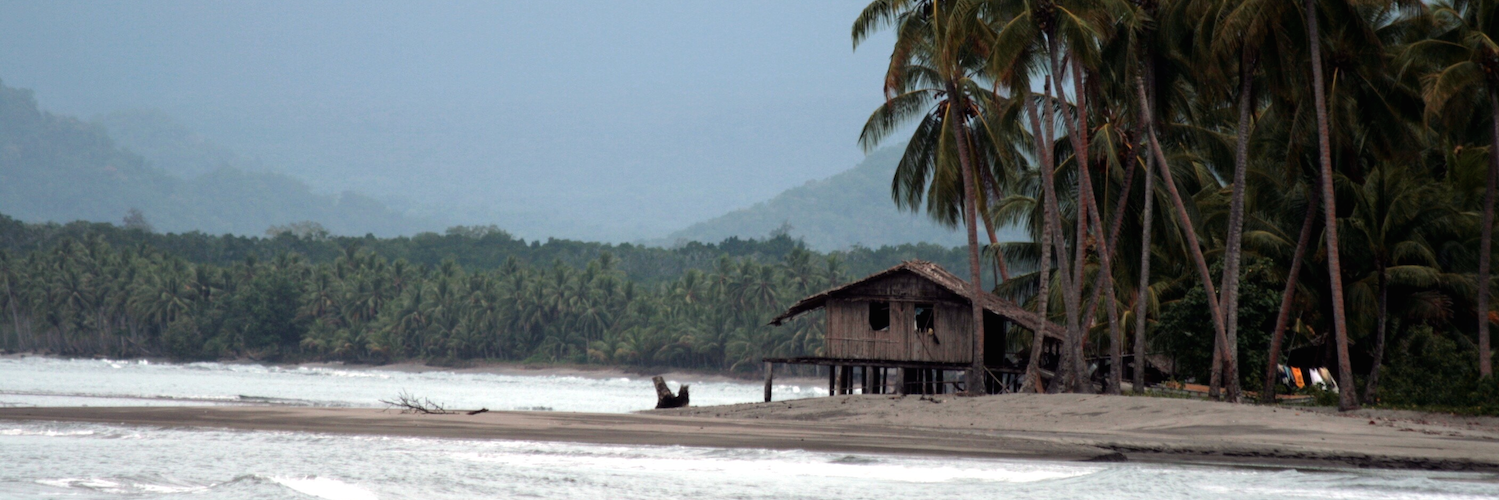This message comes from Adelbert Gangai and George Baure of Collingwood Bay, Papua New Guinea. They are two of many local residents fiercely resisting KLK’s attempted landgrab of the community’s forests.
Our names are Adelbert Gangai and George Baure. We are calling on you today from the tribes of Collingwood Bay, Papua New Guinea, to ask you to take action to support us in defending our land from destruction by the palm oil giant KLK.
Our villages are spread across a pristine stretch of isolated coastline backed by vast mountains and valleys covered in some of the most lush and biodiverse rainforest on earth. Our people practice a subsistence-based lifestyle, living close to the land by hunting and gathering within our rich customary territory. We mean to maintain this existence and keep control our own destiny at all costs.
We have traveled from our homes to Malaysia to join our allies at Rainforest Action Network for a second time at the annual meeting of the Roundtable on Sustainable Palm Oil (RSPO). We are here again because the formal complaint, which we filed over a year and a half ago with the RSPO to protest attempts to develop our land against our will, has yet to be resolved.

Last year, when we were frustrated that the RSPO had refused to respond to our official complaint, over 10,000 RAN supporters sent messages to KLK and the RSPO and the pressure worked to secure us a meeting and finally move our protest forward. But now we are stalled again and we need your help to pressure the RSPO to take steps to resolve our case for good.
The land KLK intends to develop is roughly 85 percent primary forest. Our people have repeatedly and unequivocally declared our united opposition to any foreign palm oil development on our land. In fact, with the strength of the national laws of Papua New Guinea behind us, we have stated in the strongest of possible terms that neither KLK nor its agents have permission to enter Collingwood Bay without our express consent.
For these reasons, there is no way the parcel KLK claims rights to can be developed while obeying the standards of the RSPO. Yet KLK continues to keep land-clearing machinery on site in Collingwood Bay, and the company has expressed no intention of leaving our land.
This continued presence is causing anxiety and uncertainty among our people. We could not be more clear: we want KLK to leave Collingwood Bay and we want them to do it now. If this case does not provide an easy opportunity for the RSPO to show that its complaints resolution process is a valid tool for achieving solutions, then its legitimacy truly is in question.












